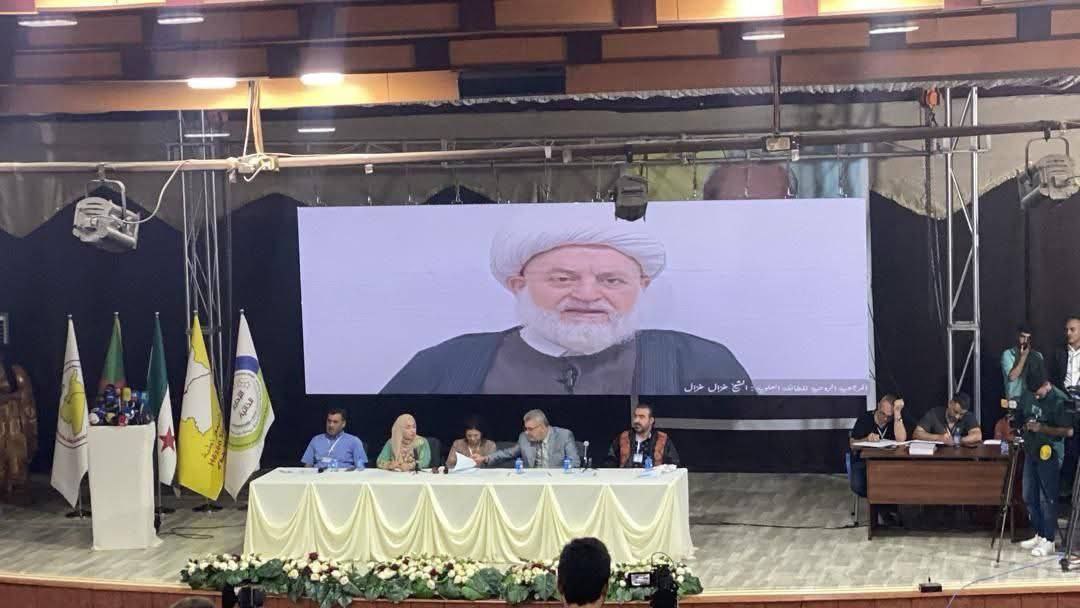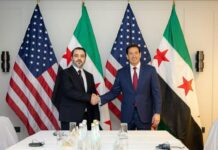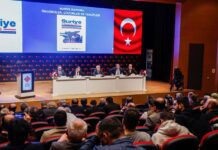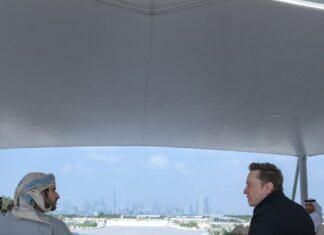
The “Unity of Position of Northeastern Syria” conference, organized by the Syrian Democratic Forces (SDF) in Hasakah August 8, sparked criticism from Damascus, Turkey and regional analysts, who say the event undercut both its stated message and ongoing negotiations with the Syrian government.
The gathering brought together tribal, religious and political figures, including former military officers from the Assad-era army, members of the Baath Party, and representatives of groups linked to the PKK, the Iranian-backed militias and foreign sponsors such as Israel and Russia.
Syrian-American analyst Hassan Hassan said the lineup played into the Syrian government’s narrative. “Damascus could hardly have scripted it better,” he wrote, noting the inclusion of a Druze cleric who thanked Israel for bombing Syria and attendees known for sectarian rhetoric.
Even some participants objected. A tribal leader seated in the front row reportedly walked out during Druze sheikh Hikmat al-Hijri’s speech, later pledging support to Damascus. The Council of Circassian Tribes in Syria issued a statement rejecting the use of minority identities to back separatist projects, stressing loyalty to Syria’s unity and independence.
Violation of the March 10 Agreement
An official government source called the conference a “clear violation” of the March 10 agreement between the government and the SDF, which stipulates integration of civil and military institutions in the northeast into state structures. The source said the event lacked inclusivity and served as a platform for separatist figures, undermining the Paris-hosted talks scheduled with SDF participation.
The government also criticized calls from the conference for a new “national army” and changes to Syria’s administrative divisions, saying they contradict commitments to one army and one state. “This is an attempt to internationalize the Syrian issue and invite foreign interference,” the official said, adding that Damascus would push to move all negotiations to the capital.
A Conference of Contradictions?
Critics have pointed to contradictions between the conference’s rhetoric and its guest list. Attendees compared Syria’s transitional government to the Baath Party while hosting former Baath officials, and decried authoritarianism despite human rights groups’ reports of repressive governance in SDF–and Autonomous Administration–controlled areas.
Qutaiba Idlibi, director of American Affairs at the Syrian Foreign Ministry, said, “It’s not right to talk about unity and reject partition while conferences are held on sectarian and ethnic grounds, and symbols of the [Assad] regime are being re-exported under new names.”
Regional Implications
Turkey, which views the SDF as an extension of the PKK, also condemned the meeting. Analysts warn that involving actors such as Hijri or Siban Hamo with competing allegiances to Israel, Iran, and Russia risks deepening divisions in Syria rather than forging consensus. Hassan argued that Israel’s presence, even alongside figures with pro-Iranian ties, reflects a broader aim to “keep the country weak and busy [fighting] itself.”
While SDF leaders, including Ilham Ahmad, reaffirmed their commitment to Syria’s “territorial integrity” and “the March 10 agreement,” the fallout from the Hasakah conference has reinforced doubts over whether the group’s political outreach can match its stated objectives for unity and inclusiveness.








